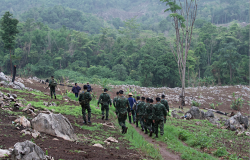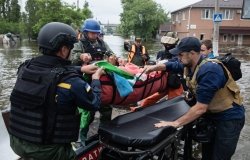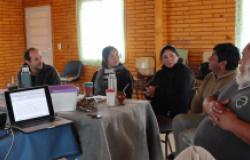Wilson Center President Lee H. Hamilton Urges Stronger Economic, Political Diplomacy
Military Power Crucial, But Not Sufficient, Says Editorial
The United States should expand its civilian tools of international power, argued Wilson Center President Lee H. Hamilton in "Wielding our power smartly," a January 14, 2007, editorial in The Indianapolis Star. "America's crucial role in a complicated world demands that we apply effectively all the tools of U.S. power—public and private, military, economic and political. Our challenge is to cultivate an international system that puts cooperation and engagement at its core," said Hamilton. "While our military might is great and valuable, it cannot defend our values and interests alone. We should not abandon our coercive tools of statecraft, but we must better integrate them with our nonmilitary instruments."
According to Hamilton, the United States can help foster this international system of cooperation and engagement by:
- Recommitting itself to active participation in the United Nations, NATO, and other multilateral organizations;
- Strengthening its bilateral relations with long-time and more recent allies;
- Expanding the U.S. Department of State and the U.S. Agency for International Development; and
- Making the economic development of other countries a priority.
"The United States must be seen as the champion of economic growth and development for all people, leading the way in providing a better distribution of the benefits of globalization and trade," said Hamilton.
Hamilton represented Indiana's 9th congressional district for 34 years. Following his retirement from Congress in 1999, he served as vice-chair of the 9/11 Commission and co-chaired the Iraq Study Group with James Baker, with whom he shared the 2007 International Statesman Award from the World Affairs Council. Known for his strong relationships on both sides of the aisle, Hamilton was dubbed "Washington's Bipartisan Power Broker" in a recent Christian Science Monitor article.
Related Program

Environmental Change and Security Program
The Environmental Change and Security Program (ECSP) explores the connections between environmental change, health, and population dynamics and their links to conflict, human insecurity, and foreign policy. Read more










